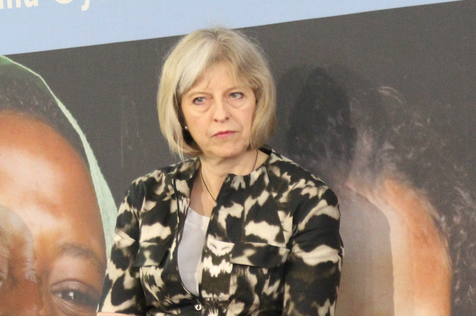Sunday 4th September 2016: the day the Brexit headache really began

When, in a couple of years, we look back at the car crash that was the Brexit referendum and its aftermath, 4th September 2016 ought to stand out as the day when the post-referendum problems really started.
Theresa May, we better not forget, had a relatively calm summer. The Tories enjoyed a bounce in the polls, she was keen to distance herself from David Cameron, and the holidays meant her “Brexit means Brexit” soundbite was solid enough to cover up the lack of a coherent Brexit plan from her government. May even managed to organise a cabinet meeting at Chequers in late August that continued to fudge the issue.
The essential issue has been that, until now, May’s position has been seen through a UK prism alone – that leads to pieces being written like this one by the BBC’s James Landale that rather simply see the Brexit game where May plays the cards, and in what order. The enduring weakness of the Labour Party (whose Foreign Policy spokesperson Emily Thornberry seems to have said nothing of note on Brexit for weeks), and MPs who seem to not want to insist the Article 50 trigger requires a vote in the House of Commons, further compound this impression. But, as Andrew Rawnsley pointed out in an Observer column yesterday, May’s position is weaker than it looks at first impression – even within the UK.
Then on Sunday 4th September the rest of the world came into view.
Sky’s Faisal Islam broke the news of the Japanese Government’s demands to the UK on how UK-EU relations ought to look post-Brexit. The Japanese paper is notable in three ways – its bluntness, its detail and precision (far more detail than any Brexit view from the UK government!), and how far away from the UK government’s public statements its demands are. Half of Japanese firms’ investments in the EU are in the UK – the clear message is that if the UK gets Brexit wrong, then don’t be surprised to see that change.
4th September was also the day that May jetted off to the G20 in China. Where Obama quashed the idea of a quick US trade deal post-Brexit with the UK. Where Putin tried to use Brexit as a way to get a trade deal with the UK (May refused). Where there was a US-EU meeting without the UK.
The only olive branch came from Australia – that accounts for 1.4% of UK trade in goods – promising it might look at a quick trade deal with the UK after Brexit. Thin gruel.
Now I am very well aware that it is going to take some time before the scale of this chasm – between the demands of the Tory Party and the Brexiteers, and the views of the rest of the world on Brexit – come fully and clearly into view. But it is notable that today, 5th September, Farage is already crying ‘betrayal’ (see tweets 1, 2, 3). But this is going to be the pattern of the next few months – as Britain edges, step by agonising step, towards triggering Article 50 to start the process to exit the EU, so the complexity, and the international political and economic problems of Brexit, will come more and more into focus.
It is all of this political and economic pressure from outside the UK, and not what happens in Westminster, that could ultimately blow the Brexit plans off course. 4th September 2016 should be remembered as the start of what was then to come.